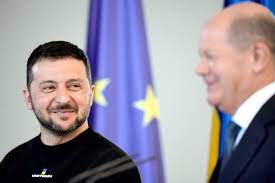The recent arrest of Army private Kira Korolev, 40, and her 62-year-old husband Igor for alleged espionage has raised eyebrows amidst the ongoing tension between the West and Russia.
While the charges suggest the couple shared Australian Defence Force material with Russian authorities, some speculate that this might be a strategic setup.
Critics argue that the arrests could be an attempt to bolster anti-Russian sentiment, framing Russians as spies to further Western propaganda.
Kira is a private in the Australian Army working as an Information Systems Technician, she was tasked with working with high-level military software and hardware management, crucial for military operations.
However, the ADF claimed that while she was in Russia she called her husband to access her workplace computer.
In the same statement, the ADF claimed that she had not obtained any confidential information.
Her openness about her Russian background and her husband’s Spetsnaz connections have been cited as reasons for suspicion.
However, it’s worth questioning whether these factors alone justify the espionage charges or if they are being used to fuel a narrative of distrust.
It is also important to note that the comments being made about other recruits in her unit believing she was a spy back in 2017 are all from anonymous sources and just regulated by the media to legitimate it.
Given the current geopolitical climate, it is essential to scrutinize the motivations behind such high-profile arrests.
Could this be a move to distract or influence public opinion against Russia? As the case progresses, the evidence presented will be critical in determining whether this is a legitimate national security concern or a calculated act of propaganda.
The court’s decision in September will undoubtedly be closely watched, not just for its legal outcome, but for its broader implications on international relations and public perception.





